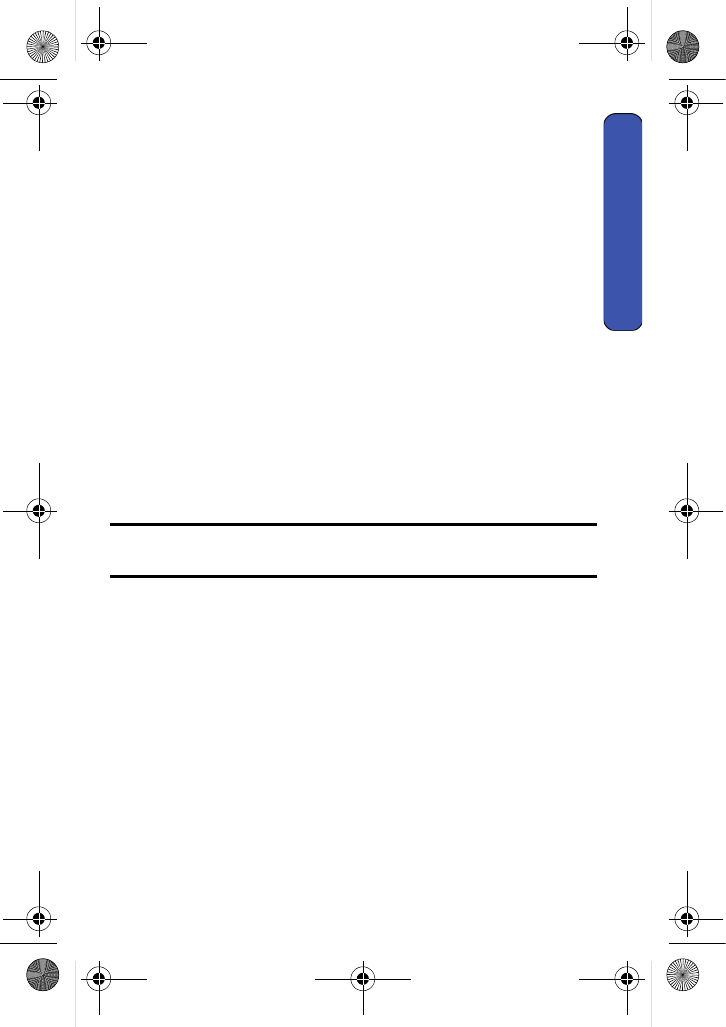
Safety 111
Safety
• Use your phone to help others in emergencies.
• Call roadside assistance or a special non-emergency wireless number
when necessary.
Following Safety Guidelines
To operate your phone safely and efficiently, always follow any special regulations
in a given area. Turn your phone off in areas where use is forbidden or when it
may cause interference or danger.
Using Your Phone Near Other Electronic Devices
Most modern electronic equipment is shielded from radio frequency (RF) signals.
However, RF signals from wireless phones may affect inadequately shielded
electronic equipment.
RF signals may affect improperly installed or inadequately shielded electronic
operating systems and/or entertainment systems in motor vehicles. Check with the
manufacturer or their representative to determine if these systems are adequately
shielded from external RF signals. Also check with the manufacturer regarding any
equipment that has been added to your vehicle.
Consult the manufacturer of any personal medical devices, such as pacemakers
and hearing aids, to determine if they are adequately shielded from external RF
signals.
Note: Always turn off the phone in health care facilities and request permission
before using the phone near medical equipment.
Turning Off Your Phone Before Flying
Turn off your phone before boarding any aircraft. To prevent possible interference
with aircraft systems, U.S. Federal Aviation Administration (FAA) regulations
require you to have permission from a crew member to use your phone while the
plane is on the ground. To prevent any risk of interference, FCC regulations prohibit
using your phone while the plane is in the air.
Turning Off Your Phone in Dangerous Areas
To avoid interfering with blasting operations, turn off your phone when in a blasting
area or in other areas with signs indicating that two-way radios should be turned
off. Construction crews often use remote-control RF devices to set off explosives.
u440 BMC Guide.book Page 111 Wednesday, October 8, 2008 10:17 AM


















